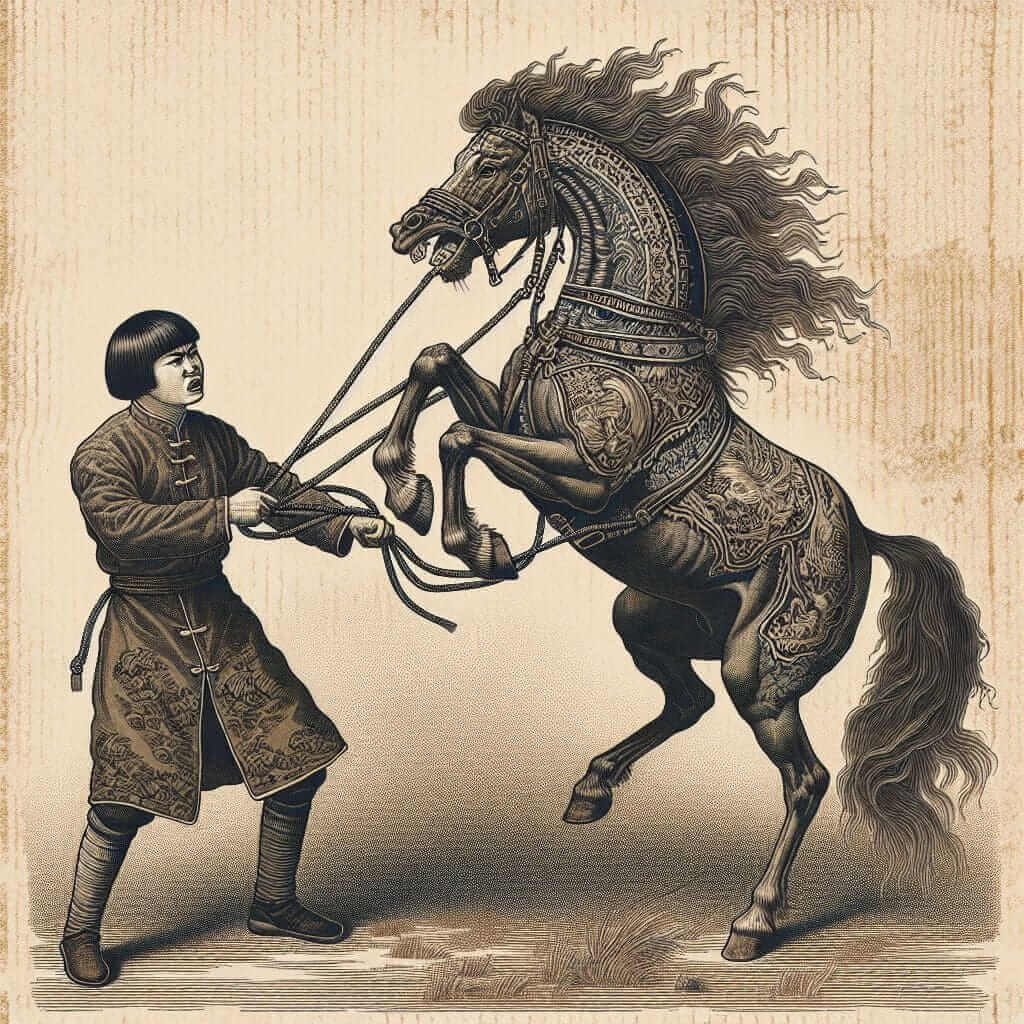The idiom “hold your horses” is an informal expression often used in conversational English. It means “wait a moment” or “be patient.” This phrase can appear in various contexts, including IELTS, where understanding idiomatic expressions can be crucial for higher scores in the speaking and writing sections.
Synonyms and Related Expressions:
- Hold on /hoʊld ɔn/ (phrasal verb): to wait.
- Example: Hold on, I’ll be ready in just a minute.
- Wait a minute /weɪt ə ˈmɪnɪt/ (phrase): to wait a short time.
- Example: Please wait a minute while I check your information.
- Be patient /bi ˈpeɪʃənt/ (phrase): to remain calm and wait.
- Example: We need to be patient while the outcome is decided.
- Slow down /sloʊ daʊn/ (phrasal verb): to reduce speed or delay.
- Example: Can you slow down and explain that again?
- Hang on /hæŋ ɔn/ (phrasal verb): to wait or hold tight.
- Example: Hang on, I forgot my wallet inside.
Analysis of the Idiom “Hold Your Horses”
Meaning and Usage
The phrase “hold your horses” originates from the times when horses were the primary mode of transportation; drivers had to restrain their excited horses, thus telling them to “hold.” Metaphorically, it advises people to be patient and not rush.
Examples of Usage:
-
Situation 1: Academic Setting:
- Teacher: “I’ll give you your test results tomorrow.”
- Student: “But I want to know now!”
- Teacher: “Hold your horses; patience is a virtue.”
-
Situation 2: Everyday Conversation:
- Friend 1: “Let’s leave now!”
- Friend 2 (waiting for another friend): “Hold your horses, John is still getting ready.”
-
Situation 3: Work Environment:
- Supervisor: “The report is due in an hour.”
- Employee: “I’m almost finished. Hold your horses.”

Prevalence in IELTS
In the IELTS exam, idiomatic expressions can showcase your proficiency and understanding of English. “Hold your horses” might appear in listening and speaking sections where you need to interpret or use idiomatic speech.
Typical IELTS Example:
-
Speaking Part 1/2:
- Examiner: “Can you tell me about a time when you had to wait for something important?”
- Candidate: “Yes, last year I had to wait for my visa approval. Despite my anxiety, my friends kept telling me to hold my horses.”
-
Listening Section: You might hear a conversation where someone uses this idiom to ask for patience.
Writing Sample Using “Hold Your Horses” in IELTS
In the writing task, using idiomatic expressions like “hold your horses” can add nuance and color to your essay or letter.
Example for Writing Task 2:
- Question: Discuss the effects of fast-paced life on people’s well-being.
- Sample Answer:
“In today’s fast-paced society, individuals often feel the need for instant gratification. This urgency can lead to increased stress and reduce overall well-being. It is essential to remind ourselves to hold our horses and take things slower to maintain mental health and improve life quality.”
Combining “Hold Your Horses” with Other Words
- Imperatives:
- Hold your horses, let me explain first.
- Questions:
- Can you hold your horses for a second while I complete this task?
- Subordinate Clauses:
- He hurried to leave, but I told him that he should hold his horses until the meeting was over.
- Statements:
- Sometimes, it’s better to hold your horses rather than make hasty decisions.
Related Idiomatic Expressions
- Cool your jets: Calm down, be patient.
- Example: Cool your jets, we have plenty of time.
- Take a chill pill: Relax and don’t worry.
- Example: I encouraged her to take a chill pill about the whole situation.
- Simmer down: Become less angry or excited.
- Example: He needed to simmer down before continuing the conversation.
- Keep your shirt on: Stay calm, be patient.
- Example: Keep your shirt on, I’ll do it in a moment.
- Hold on to your hat: Be prepared for something exciting or sudden.
- Example: Hold on to your hat, we’re in for a wild ride.
Conclusion
Understanding and using idiomatic expressions like “hold your horses” can significantly enhance your IELTS performance, especially in the speaking and writing sections. Remember to use these phrases naturally to demonstrate your command over the language.
By integrating idiomatic expressions into your practice, you will become more comfortable and confident in using them during your IELTS exam. For further exploration of similar expressions and their usage, visit this link.